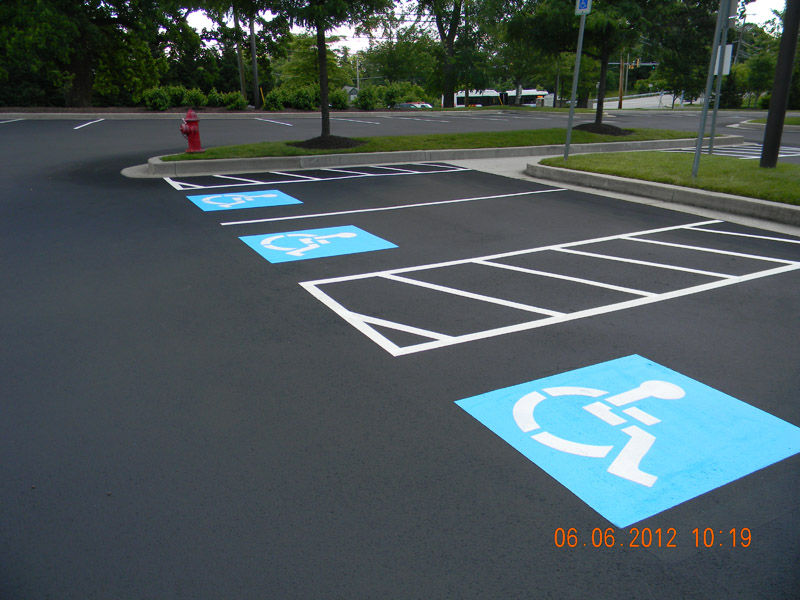Still on the fence about sealcoating your asphalt? Let’s compare the merits of sealed and unsealed lots.
Weather
It’s now April and getting warm and sunny, but who could forget that winter? Here in Baltimore, it snowed ridiculous amounts and remained cold for weeks. The cold and lingering ice probably did a number on your parking lot. Without sealcoating, the weather erodes the binder in asphalt, resulting in a surface vulnerable to potholes and pitting. The result is unattractive and possibly even damaging to customers’ vehicles as they visit your business.
But not if you’ve recently treated your lot with sealcoating. Even through the last unusually harsh Baltimore winter, sealcoating made certain lots continue to look and feel new. Now that it’s spring, take a look. What’s the difference between a sealed and unsealed lot? The sealed one is clean, uniform and free from potholes and other damage. It doesn’t have patches, which are a band-aid solution resulting in more rough surface.
During the winter, sealcoating offers other advantages. How many times did you pull into a snow-and-ice-filled Baltimore lot this winter, and shuffle carefully into the business, hoping not to slip?
With sealcoating, this is less of a problem. Snow and ice melt more quickly on sealed asphalt than on unsealed asphalt.
Aesthetics
Harsh winter or not, sealcoating simply makes a parking lot look better.
When you visit a business in Baltimore, what’s the first thing you do? In many cases, it’s stepping out of your car into the parking lot.
You probably don’t get down on your knees and inspect the lot, but you do notice—consciously or subconsciously—its condition. This may be the first impression that you have of a business.
An unsealed lot can look worn-out and neglected, possibly reflecting badly on a business owner.
If you’re a Baltimore business owner, you want that crucial first impression to be favorable. A well-maintained parking lot, treated with sealcoating from SealMaster®, will give your customers an impression of professionalism as they take their first steps on your property.
Money
Yes, you have to spend a little money to treat your lot with sealcoating. But you’ll save it in the long run. If you coat your lot every four years, you’ll of course spend more money—in the short term—than the business owner who doesn’t. But after a dozen years or so, he’ll have to re-asphalt his entire lot, a much more costly undertaking. Yours will still stand out as one of the newest in Baltimore, even when it’s years old.
The Verdict
Sealcoating your asphalt carries many advantages—it makes your lot more weatherproof, nicer to look at, and—in the long run—less expensive to maintain. More questions? Give PTG Enterprises aka My Pavement Guy a call about sealcoating in and around Baltimore. Call us at 410-636-8777 or click here today! You can also follow PTG Enterprises on Facebook and Twitter!






















